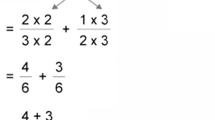Abstract
THE EFFECTS OF MULTITASKING IN THE CLASSROOM were investigated in students in an upper level Communications course. Two groups of students heard the same exact lecture and tested immediately following the lecture. One group of students was allowed to use their laptops to engage in browsing, search, and/or social computing behaviors during the lecture. Students in the second condition were asked to keep their laptops closed for the duration of the lecture. Students in the open laptop condition suffered decrements on traditional measures of memory for lecture content. A second experiment replicated the results of the first. Data were further analyzed by “browsing style.” Results are discussed from Lang’s Limited Process Capacity model in an attempt to better understand the mechanisms involved in the decrement.
Similar content being viewed by others
Explore related subjects
Discover the latest articles, news and stories from top researchers in related subjects.References
Baddeley, A.D., Lewis, V., Eldridge, M., & Thomson, N. (1984). Attention and retrieval from long-term memory.Journal of Experimental Psychology: General, 13, 518–540.
Broadbent, D. (1958).Perception and Communication. Oxford: Pergamon.
Broadbent, D. (1971).Decision and Stress. London: Academic Press.
Craik, F.I.M., & Lockhart, R.S. (1972). Levels of Processing: A framework for memory research.Journal of Verbal Learning and Verbal Behavior, 11, 671–684.
Fisch, S.M. (2000). A capacity model of children’s comprehension of educational content on television.Media Psychology, 2, 63–91.
Grace-Martin, M, & Gay, G. (2001). Web browsing, mobile computing and academic performance. Special Issue on Curriculum, Instruction, Learning and the Internet.IEEE and International Forum of Educational Technology & Society.
James, W. (1890).The Principles of Psychology, Vol. 1. New York: Henry Hold & Co.
Johnson, W.A., Greenberg, S.N., Fisher, R.P., & Martin, D.W. (1970).Journal of Experimental Psychology, 83 (1), 164–171.
Lang, A. (2001). The limited capacity model of mediated message processing.Journal of Communication, 46–70.
Lee, J., Stefanone, M., & Gay, G. (2002)Web browsing and mobile computing: Examining characteristics of web browsing patterns. Paper to be presented at ICA, Communication and Technology Division.
Mandler, G. (1967). Organization and memory. In K.W. Spence & J.T. Spence (Eds.),The Psychology of Learning and Motivation, Vol. 1. New York: Academic Press.
Naveh-Benjamen, M., Craik, F.I.M., Perretta, J.G., & Tonev, S.T. (2000). The effects of divided attention on encoding and retrieval processes: The resiliency of retrieval processes.The Quarterly Journal of Experimental Psychology, 53A (3), 609–625.
Postman, L. (1964). Sort-term memory and incidental learning. In A.W. Melton (Ed.),Categories of Human Learning. New York: Academic Press.
Soloway, E., Guzdial, M., & Hay, K. (1994, April). Learner-Centered design: The next challenge for HCI.ACM Interactions.
Soloway, E., Krajcik, J.S., Blumenfeld, P., & Marx, R.W. (1996). Technological support for teachers transitioning to project-based science practices. In T. Koschmann (Ed.),CSCL: Theory and Practice For an Emerging Paradigm. New Jersey: Lawrence Earlbaum Associates.
Spelke, E., Hirst, W., & Neisser, U. (1976). Skills of divided attention.Cognition, 4, 215–230.
Tresselt, M.E., & Mayzner, M.S. (1960). Incidental learning: A function of associative strength and distance between S-R pairs.Journal of Psychology, (53), 155–160.
Tulving, E., & Thompson, D.M. (1973). Encoding specificity and retrieval processes in episodic memory.Psychological Review, 50, 352–373.
Woodworth, R.S. (1921).Psychology: A Study of Mental Life. New York: Henry Holt & Co.
Author information
Authors and Affiliations
Corresponding author
Additional information
ABOUT THE AUTHORS
Helene Hembrooke is the Associate Director for the Human Computer Interaction Group (HCI Group). After receiving her PhD in 1993 from Binghamton University in Upstate NY. She spent the next five years conducting research aimed at investigating issues of attention, perception, learning, and memory, and how these processes change in early childhood. Some of her research with the HCI Group is aimed at investigating search behavior as it applies both to better system, interface design, and metadata extraction, as well as the potential relevance this research has for the field of cognitive psychology.
In addition to this work, Dr. Hembrooke has begun a series of experiments using eye tracking equipment to monitor differences in browsing and search behavior on various Web sites. Combining this with other data on location and movement, her intention is to look at ways to predict movement in virtual spaces as a function of the spaces’ configural properties.
Geri Gay is director of the Human Computer Interaction Group (HCI Group) and a professor at Cornell University in the department of Communication and Information Sciences. The HCI Group is a research and development group whose members design and research the use of computer-mediated learning environments. Professor Gay’s research interests focus on cognitive and social issues for the design and use of interactive communication technologies. Past research has explored navigation issues, knowledge management, mental models and metaphors, knowledge representations, collaborative work and learning, and system design.
Professor Gay has received funding for her research and design projects from the National Science Foundation (NSF), the National Endowment for the Humanities (NEH), the Mellon Foundation, Intel, GE Foundation, IBM, Getty, and several private donors. She teaches courses in interactive multimedia design and research, computer-mediated communication, human-computer interaction, and the social design of communication systems.
Recently she has published inIEEE, International Journal of Human Computer-Interaction, Journal of Computer-Mediated Communication, CHI, HICCS, ACM Digital Libraries andACM CSCL.
She coeditedInformation Technologies in Evaluation; Social, Moral, Epistemological and Practical Implications (1999), Jossey-Bass Publishers and is coauthoringActivity Based Design (in press), MIT Press.
Rights and permissions
About this article
Cite this article
Hembrooke, H., Gay, G. The laptop and the lecture: The effects of multitasking in learning environments. J. Comput. High. Educ. 15, 46–64 (2003). https://doi.org/10.1007/BF02940852
Issue Date:
DOI: https://doi.org/10.1007/BF02940852




